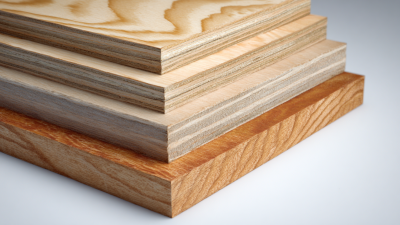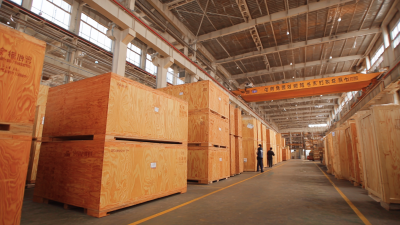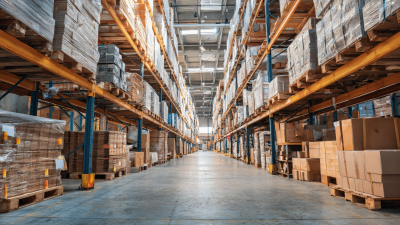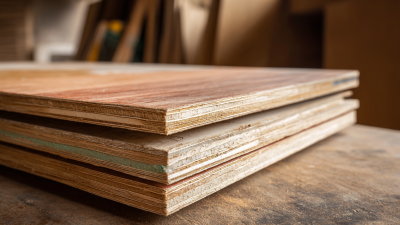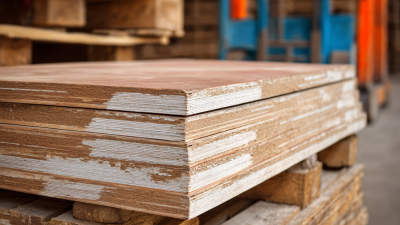In the realm of construction materials, durability and resilience are pivotal factors that can significantly impact project longevity and performance.
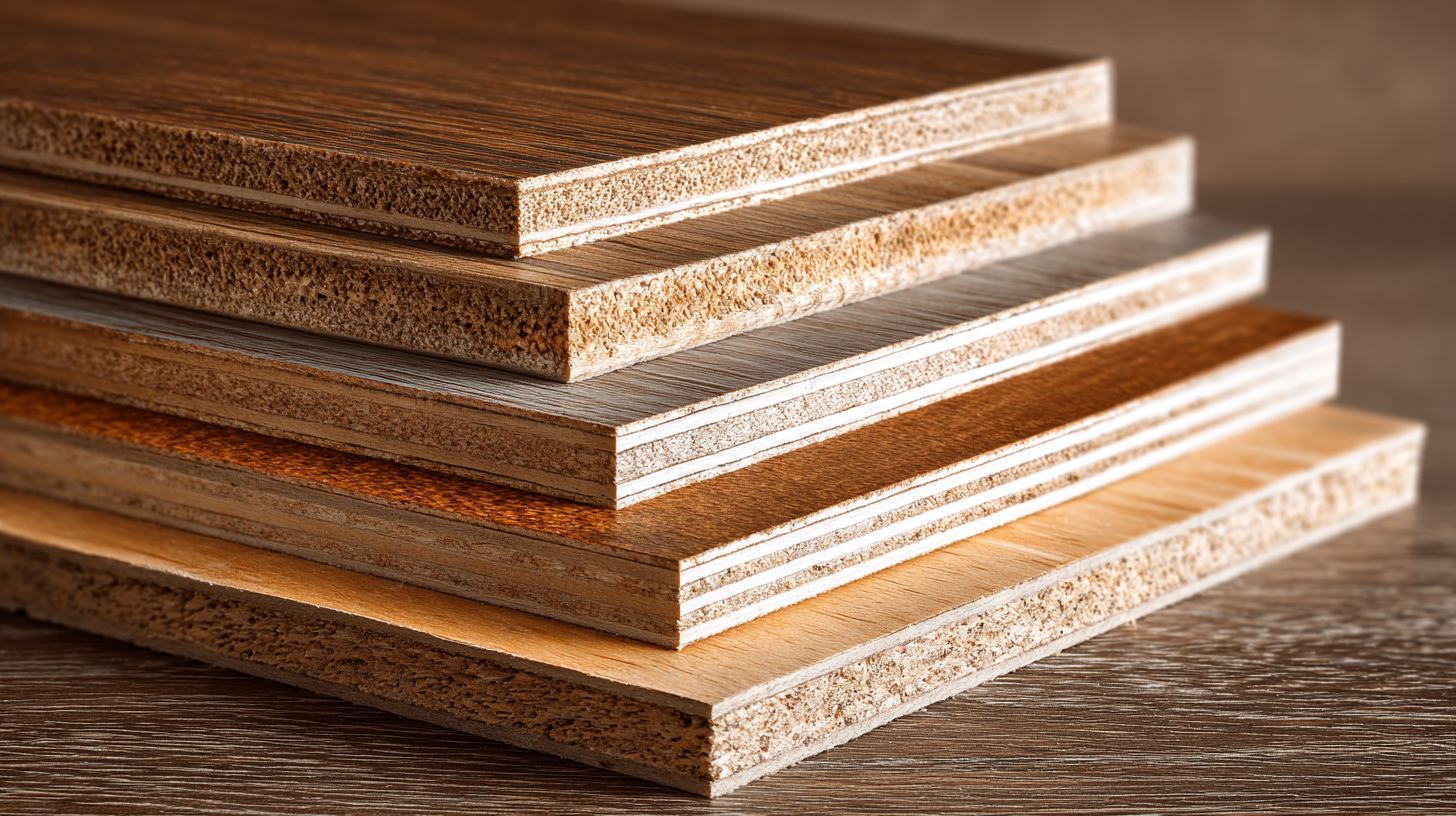 Phenolic Plywood has emerged as a leading choice among builders and architects, owing to its exceptional strength, moisture resistance, and versatility. According to a report by Research and Markets, the global plywood market is projected to reach USD 75 billion by 2026, driven by the increasing demand for high-quality construction materials. This report highlights that phenolic plywood, in particular, is lauded for its superior structural integrity and ability to withstand extreme environmental conditions, making it an ideal solution for both indoor and outdoor applications. With a lifespan that can surpass traditional plywood options, and a commendable track record in various commercial projects, Phenolic Plywood not only meets but exceeds the expectations of modern construction demands.
Phenolic Plywood has emerged as a leading choice among builders and architects, owing to its exceptional strength, moisture resistance, and versatility. According to a report by Research and Markets, the global plywood market is projected to reach USD 75 billion by 2026, driven by the increasing demand for high-quality construction materials. This report highlights that phenolic plywood, in particular, is lauded for its superior structural integrity and ability to withstand extreme environmental conditions, making it an ideal solution for both indoor and outdoor applications. With a lifespan that can surpass traditional plywood options, and a commendable track record in various commercial projects, Phenolic Plywood not only meets but exceeds the expectations of modern construction demands.
Phenolic plywood has gained recognition in the construction industry for its outstanding performance in structural integrity testing. According to the "Wood Science and Technology" journal, various studies confirm that phenolic plywood exhibits superior strength-to-weight ratios compared to traditional plywood types. This attribute is essential for construction materials, as it provides the necessary durability while minimizing the overall structural load. In a recent report by the American Plywood Association, phenolic plywood showed a 30% better performance in shear tests, indicating enhanced resistance to forces that typically lead to material failure.
Moreover, phenolic plywood’s moisture resistance significantly contributes to its structural integrity. The "Journal of Building Materials and Structures" highlights that this type of plywood can withstand extreme humidity and moisture conditions, maintaining its performance under stress. The durability is further backed by laboratory results, which demonstrate minimal swelling and deformation compared to standard plywood alternatives. Consequently, in demanding environments, such as marine or high-traffic construction sites, phenolic plywood is an invaluable material choice, ensuring longevity and reliability in structural applications.
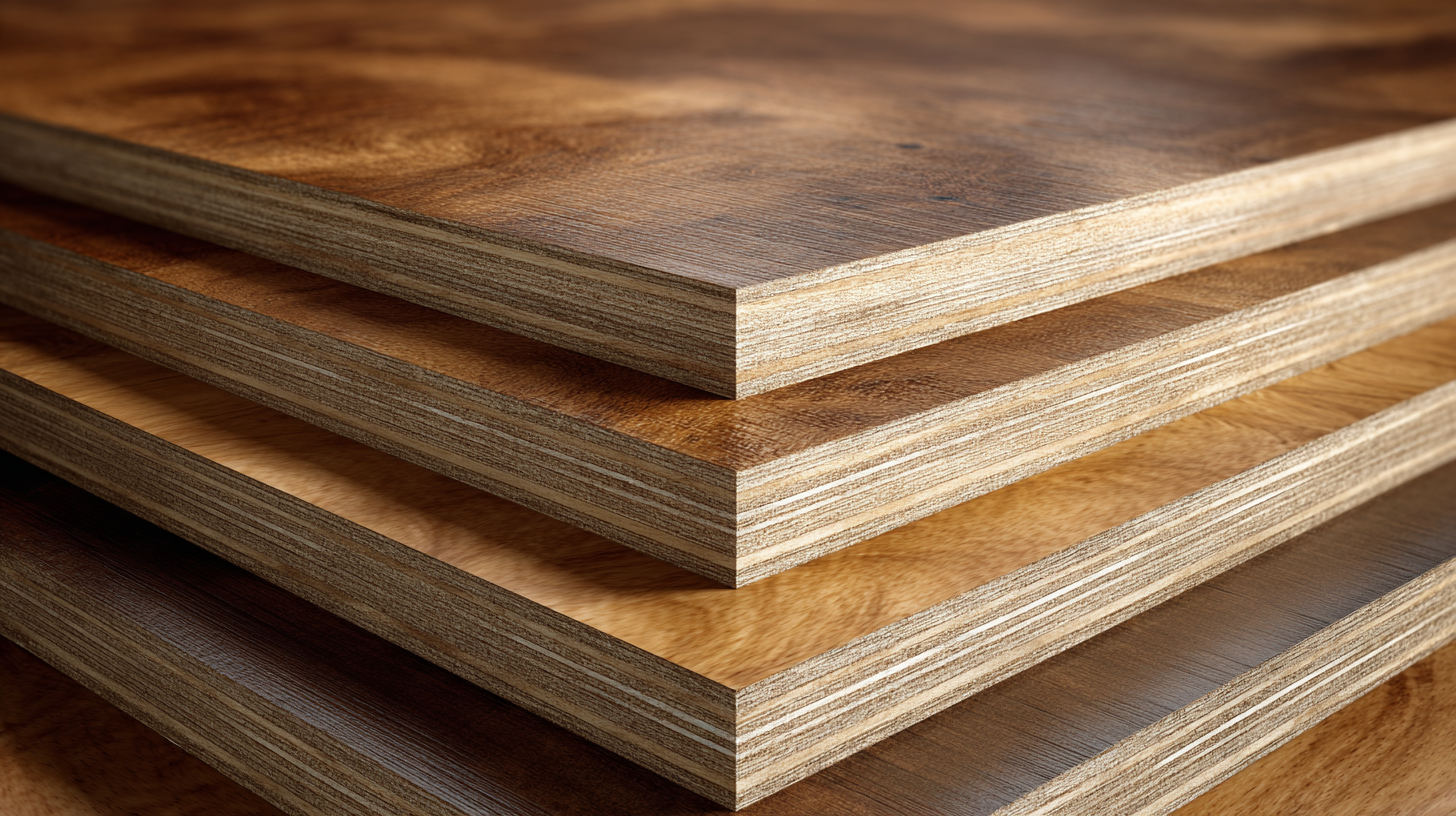
Phenolic plywood has emerged as a leading option in durable construction materials, especially when compared to traditional wood materials. One of the key advantages of phenolic plywood is its enhanced moisture resistance. According to a report by the International Journal of Advanced Structures and Geotechnical Engineering, phenolic plywood can withstand over 24 hours of continuous exposure to water without significant degradation, whereas traditional wood materials begin to show signs of deterioration within just a few hours. This remarkable water resistance ensures that structures maintain their integrity over time, which is critical in regions with high humidity or fluctuating weather conditions.
Another aspect where phenolic plywood excels is in terms of mechanical properties. A study published by the Wood Research Journal found that phenolic plywood exhibits a bending strength of up to 70 MPa, significantly higher than the typical bending strength of conventional plywood, which averages around 40 MPa. This increased durability not only enhances structural performance but also allows for lighter construction designs without compromising stability. As building regulations evolve and prioritize sustainability, materials like phenolic plywood are proving to be far more resilient and effective for modern construction needs compared to their traditional counterparts.
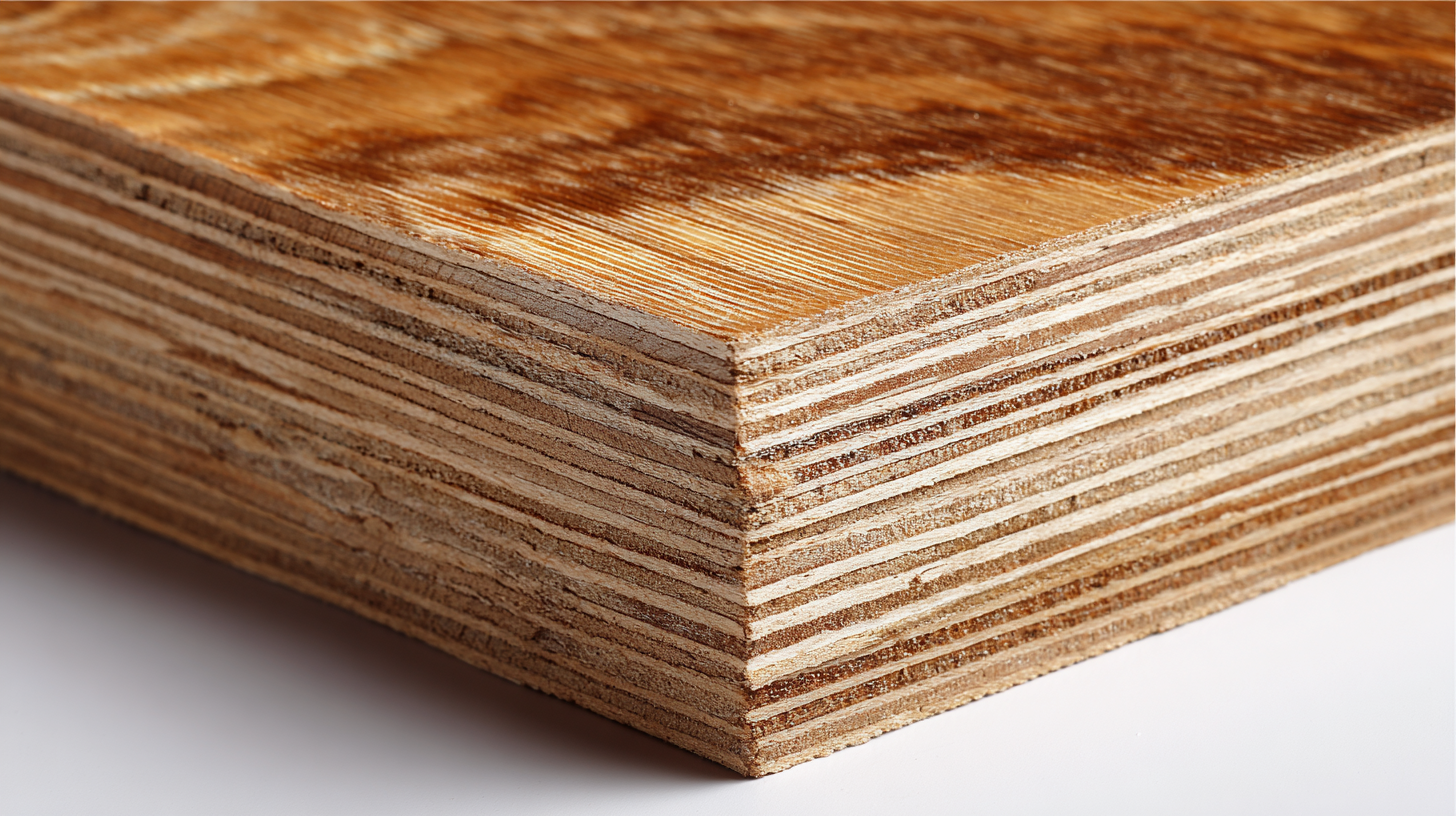 Phenolic plywood is increasingly recognized for its exceptional durability and performance in various environmental conditions. Its unique composition, involving a resin-impregnated surface, provides superior moisture resistance and minimizes the risk of delamination, making it an ideal choice for construction in both humid and dry climates. Unlike traditional plywood, phenolic plywood can withstand extreme weather, which significantly prolongs its lifespan. This resilience is particularly beneficial in applications such as exterior cladding, flooring, and permanent formwork, where exposure to the elements is a constant challenge.
Phenolic plywood is increasingly recognized for its exceptional durability and performance in various environmental conditions. Its unique composition, involving a resin-impregnated surface, provides superior moisture resistance and minimizes the risk of delamination, making it an ideal choice for construction in both humid and dry climates. Unlike traditional plywood, phenolic plywood can withstand extreme weather, which significantly prolongs its lifespan. This resilience is particularly beneficial in applications such as exterior cladding, flooring, and permanent formwork, where exposure to the elements is a constant challenge.
When considering the lifespan of phenolic plywood, it is essential to note its remarkable stability across different temperatures and humidity levels. In environments characterized by seasonal changes, phenolic plywood maintains its structural integrity without warping or swelling. Additionally, extensive testing has shown that even in harsh industrial settings, phenolic plywood exhibits minimal wear and tear, further asserting its cost-effectiveness over time. This adaptability not only enhances its appeal among builders and architects but also contributes to sustainable construction practices by reducing the need for frequent replacements.
Phenolic plywood has increasingly become a favorite in the construction industry due to its impressive sustainability metrics. Research indicates that phenolic resin, a key component of this plywood, creates a strong bond that enhances durability and extends the lifespan of the materials. According to a report from the Forest Stewardship Council (FSC), phenolic plywood can last up to 50 years, far exceeding traditional plywood options, reducing the need for frequent replacements. This longevity directly translates to lower overall resource consumption and waste production, aligning with modern construction's push for sustainability.
Moreover, phenolic plywood is often sourced from sustainably managed forests, a practice supported by various certifications, including the FSC and Programme for the Endorsement of Forest Certification (PEFC). These certifications ensure that the wood used for phenolic plywood comes from renewable resources, thereby minimizing the impact on the environment. A study by the American Wood Council reveals that using engineered wood products like phenolic plywood in construction can lower carbon emissions by 30% compared to traditional materials. With such metrics, it is clear that phenolic plywood not only meets but exceeds expectations for eco-friendly construction practices, making it a prime choice for builders aiming to reduce their environmental footprint.
The demand for phenolic plywood in commercial projects has been witnessing a significant upswing, driven by its inherent durability and versatility. According to a report by Market Research Future, the global phenolic plywood market is expected to grow at a CAGR of approximately 7.4% from 2021 to 2027. This trend reflects a broader shift in the construction industry towards materials that can withstand harsh environmental conditions while providing excellent structural integrity.
Commercial applications, such as office spaces, educational institutions, and retail environments, are increasingly prioritizing sustainability and longevity in materials. Phenolic plywood, known for its water-resistant properties and resistance to decay, is becoming the preferred choice for architects and builders.
Additionally, a survey by the Global Plywood Market reported that over 60% of construction projects now consider environmentally friendly materials, underlining the role of phenolic plywood in facilitating sustainable construction practices. As the market continues to expand, the integration of phenolic plywood in commercial design is poised to become a standard for long-lasting and resilient building solutions.
